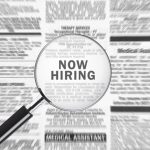The Future of Work – managing the multi-generational workforce
A major challenge that many workplaces currently face is how to effectively manage the needs of employees who fall into a wide range of generational categories – mainly the baby boomers, generation X and millennials.
"In a multi-generational workforce, there is potential for negative stereotyping."
Employees can learn from one another
Speaking to Forbes, Seb O'Connell, executive vice president and managing director for Europe at Cielo, said that some employers may be looking after staff who range in age from 18 to 80 – a situation which, if not managed well, can lead to tension.
"In a multi-generational workforce, there is potential for negative stereotyping. Older workers may perceive millennials as entitled, tech-obsessed or too eager to challenge norms while millennial employees could see previous generations as being 'stuck in their ways' and difficult to train. Organisations need to take steps to ensure managers overcome their unconscious bias."

Mr O'Connell suggested that generational differences can also offer opportunities for mutually beneficial personal growth.
"Younger workers' enthusiasm for trying new things could be used to encourage a culture of innovation, while older workers can leverage their experience and broad perspective to help millennials understand some of the costs and risks associated with their ideas," he said.
Generational differences can also offer opportunities for mutually beneficial personal growth.
How employers can manage the challenge
If you're wondering how best to handle a multigenerational workforce and turn it into a happy cohesive unit, here are a few tips that might help:
- Overcome negative stereotypes
Many of us are aware of the negative intergenerational stereotypes that exist in today's society. Whether it's labelling others as 'entitled lazy millennials' or 'stuck in their ways', such judgments can have a very negative effect in the workplace. Prevention is key and involves managers proactively identifying situations and acting quickly to ensure all employees feel respected.
- Foster an inclusive company culture
Employees of different ages, genders and cultural backgrounds will have different expectations of what is enjoyable or acceptable in terms of company culture. What is important is to embrace a culture that is inclusive of all staff, regardless of age, with opportunities for social occasions that enable everyone to connect and develop a sense of camaraderie.
- Find a way to communicate
While some gen X and baby boomers still prefer calling on the phone or old-school texting, millennials are more likely to prefer digital and social messaging. Is either style wrong? Perhaps not, but it may cause some communication breakdowns. Face-to-face meetings, on the other hand, can be beneficial when you have both younger and older employees in your team. When you have a range of generations working together, getting them in the same room together to talk about a project can assist with the communication process.
Need further advice on how to foster a happy modern workplace? Contact Flexi Personnel's HR Consultants today to find out more about how we can help you.





